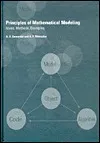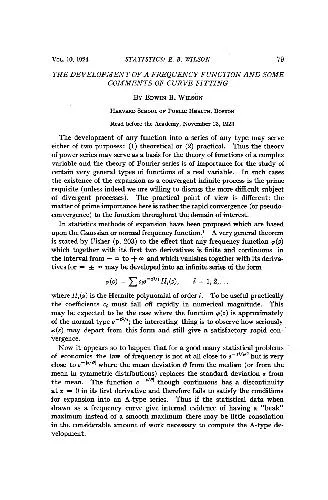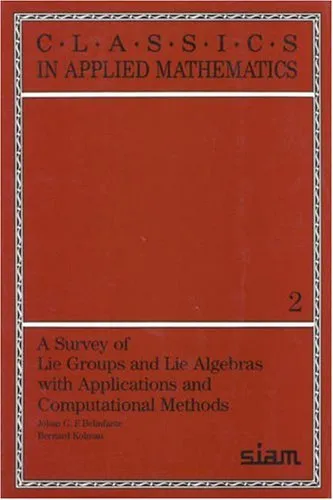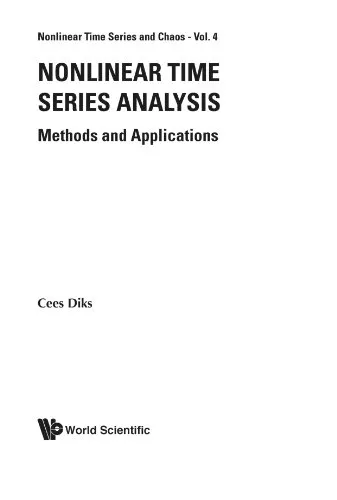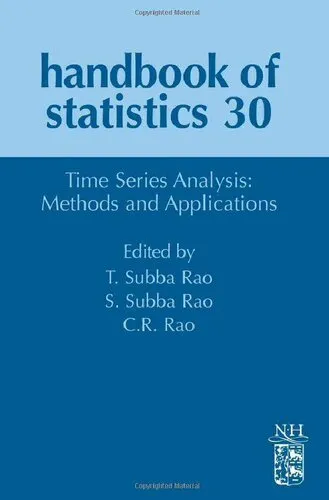Principles Of Mathematical Modeling: Ideas, Methods, Examples
4.0
Reviews from our users

You Can Ask your questions from this book's AI after Login
Each download or ask from book AI costs 2 points. To earn more free points, please visit the Points Guide Page and complete some valuable actions.Related Refrences:
Introduction
Welcome to "Principles of Mathematical Modeling: Ideas, Methods, Examples", a comprehensive exploration of the art and science of mathematical modeling. This book is designed to inspire, educate, and guide readers in understanding the core principles and applications of mathematical modeling across multiple disciplines. Whether you're a student, researcher, or practitioner, this book serves as a valuable resource for anyone striving to comprehend and apply mathematical modeling techniques effectively in real-world scenarios.
The authors, Mikhailov and Samarskiĭ, combine deep theoretical insights with practical examples to present a nuanced understanding of the principles and methodologies of mathematical modeling. This fusion of theory and practice distinguishes this book and makes it accessible to all readers, regardless of their level of expertise in the field of mathematics or its practical applications.
Detailed Summary of the Book
In "Principles of Mathematical Modeling," the authors embark on a journey to examine the foundations, techniques, and applications of mathematical modeling. The book begins by addressing the basic concepts and terminologies essential for understanding modeling. The authors emphasize the role of abstraction, simplification, and creativity in constructing mathematical models, drawing from practical problems in science, technology, and engineering.
The text is divided into expertly crafted chapters that cover diverse topics, including:
- Methodologies for formulating mathematical models
- Techniques for analyzing and solving mathematical models
- Case studies demonstrating real-world applications
- Reflections on the limitations, assumptions, and ethics of modeling
Each chapter is packed with illustrative examples and problems to help readers internalize key concepts. Whether modeling complex systems like ecosystems, financial markets, or physical phenomena, the authors ensure that the reader gains not just theoretical insights but also practical tools to address real-world challenges effectively.
Key Takeaways
- Interdisciplinary Applications: Mathematical modeling is a unifying tool applicable to various fields, from physics and biology to economics and computer science.
- Methodical Approach: The importance of systematic methods, such as defining the problem, formulating a model, solving it, and interpreting results.
- Balance of Simplification and Accuracy: Models are simplifications of reality, and mastering the balance between simplification and precision is critical.
- Critical Thinking: Mathematical modeling challenges readers to think critically about assumptions, data quality, and solution validity.
- Practical Problem Solving: Applying abstract mathematics to solve tangible problems is a central theme of this book.
Famous Quotes from the Book
"A good mathematical model is not merely a collection of equations, but a story that connects abstract mathematics with concrete reality."
"Modeling is not about finding the 'correct' answer — it’s about providing a framework for understanding and questions worth asking."
"The elegance of mathematical modeling lies in its power to reveal simplicity behind the apparent complexity of the world."
Why This Book Matters
This book holds a significant place in the field of mathematical sciences for several reasons:
- Comprehensive Overview: It bridges the gap between theoretical mathematics and practical applications, making it a go-to reference for both academic and professional audiences.
- Accessible Writing Style: The authors explain advanced concepts in a clear and approachable manner, inviting readers from various backgrounds to engage with the material.
- Emphasis on Problem-Solving: With its focus on solving real-world problems, this book equips readers with the skills needed to tackle challenges in their respective domains.
- Interdisciplinary Relevance: The book's examples and applications span multiple disciplines, showcasing the universality of mathematical modeling.
- Educational Value: It serves as an excellent textbook for undergraduate and graduate courses, as well as a practical guide for professionals and researchers.
By addressing the intricacies of mathematical modeling step-by-step, the authors ensure that readers not only understand the principles but also gain the confidence to build and use models in their work. This makes the book relevant for seasoned mathematicians and newcomers alike, fostering a deeper appreciation for the role of mathematics in solving the world's most pressing problems.
Free Direct Download
You Can Download this book after Login
Accessing books through legal platforms and public libraries not only supports the rights of authors and publishers but also contributes to the sustainability of reading culture. Before downloading, please take a moment to consider these options.
Find this book on other platforms:
WorldCat helps you find books in libraries worldwide.
See ratings, reviews, and discussions on Goodreads.
Find and buy rare or used books on AbeBooks.
1541
بازدید4.0
امتیاز0
نظر98%
رضایتReviews:
4.0
Based on 0 users review
Questions & Answers
Ask questions about this book or help others by answering
No questions yet. Be the first to ask!
